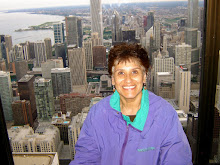My first maquiladora story.
I am the daughter of immigrants, a civil rights attorney and a university professor who has used her experiences as a lawyer/activist and scholar to support the concerns of working women at the Mexican border. I have approached the topic of immigration law and effects of national border policy on the lives of workers at the U.S. Mexican border from a very personal perspective. My mother worked in some of the first maquiladoras opened under the pre-NAFTA program known as the Border Industrialization Program. She was hired to train and supervise women being recruited to work in garment factories, the same kind of factories she had worked in for years in Los Angeles, California from the time she had immigrated to Southern California in the late forties. I have memories of Mom coming home late at night, my younger siblings and I having been cared for by Lupe, a distant cousin from Jala, Nayarit, where many of the Arriolas hail from, and Abuelita Petra, my maternal grandmother. For years what we understood of our mother’s long absences from early morning to late at night, was that she was at work. Occasionally she had to go in on weekends to help out with a production deadline. These are common in the garment industry where the chain of production that begins in the fashion designer’s office with a marketable design, leads to high pressure to get the product out and into the department stores by contracting with a garment factory owner who in turn hires low wage workers to stitch, assemble, steam press and hang on wheeled racks the hundreds of dresses ordered. Where a few dollars might have been earned for the piece work performed, the end product would be marked up several times over. Sometimes Mom took me and my older sisters into the factory on a Saturday into downtown L.A. to help her out with a production deadline. We would be handed a pair of small trimming scissors and told how to spot the threads and remove them carefully. A sea of dresses all the same color. I was often eye level with a hem or a sleeve and quickly picked up the skill of spotting the most errant tiny thread. My mother was a floorlady, a worker placed just a notch above the workers she was expected to train and pressure to produce a certain number of dresses by a certain hour. One day she was recruited to do the same kind of job in a factory two hours from Los Angeles and on the other side of Calexico, California, in a Mexican town called Mexicali. I remember her saying that it was a well paid job. But the job lasted only a few months. Mom got into the trouble for voicing her opinions about the terrible working conditions. She had been supportive of an effort by the workers to organize for better treatment and wages. I don’t know how she told us what happened. But I’ve never forgotten it. So one day my father’s two hour drive from L.A. to Mexicali was the last one. Something about how the factory she’d been recruited to work in as a floor lady because of her bilingual skills and teaching abilities, was an investment by a Mafia family known as the Bonannos. Someone came by and warned my mother that she should leave Mexicali, leave the job and never come back because there was a contract out on her life for playing a part in upsetting the plans for profitability by voicing the workers concerns to the supervisors.
